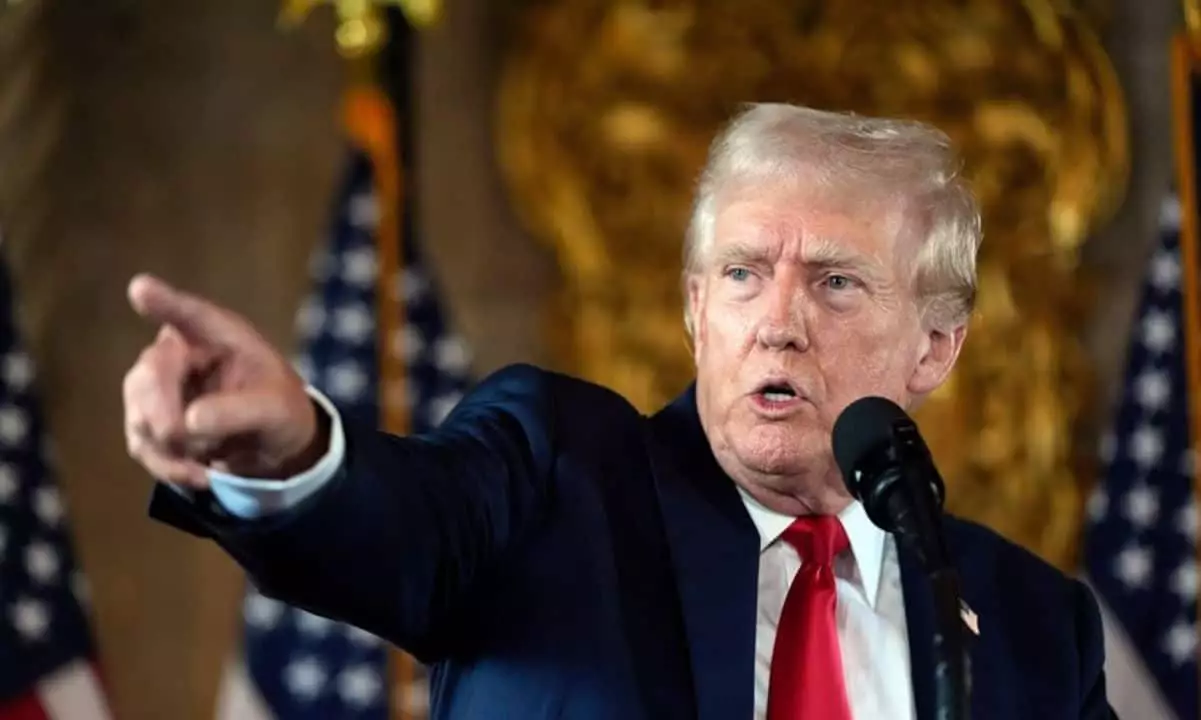The nexus of cryptocurrency and politics has intensified in recent years, leading to significant financial backing from major players in the tech and finance sectors. Recent filings with the United States Federal Election Commission reveal prominent venture capitalists Marc Andreessen and Ben Horowitz have contributed a staggering $2.5 million each to a pro-Trump super PAC named Right For America. This allegiance stems from their perception that Trump’s policies may favor the crypto industry and startups, which they collectively term the “little tech agenda.”
Andreessen’s support for Trump extends beyond pac donations, with an additional contribution of $844,600, the maximum allowed for direct donations to the president’s campaign and to the Republican Party. This investment signifies a strategic alignment in a political landscape that could potentially favor their business interests. Despite the pronounced support for Trump, Horowitz made headlines with a notably unexpected decision: he indicated plans to support Vice President Kamala Harris’ campaign. However, records of this donation remain elusive, leaving observers questioning his commitment to her candidacy and policies towards cryptocurrencies, which have been conspicuously absent from her public discourse.
Adding another layer of complexity is Chris Larsen, Ripple’s co-founder and chair, who recently donated $1 million worth of XRP tokens to the Future Forward super PAC—a group backing Harris. This move is particularly intriguing given the ongoing legal challenges Ripple faces from the SEC, a situation that has persisted for over four years. It underscores the paradox inherent in the crypto landscape, where figures like Larsen are willing to navigate fraught waters even while facing regulatory pushback.
The Right For America super PAC has emerged as a formidable force in political financing, with reported totals of $27.8 million raised and cash reserves hitting $43.6 million in the last stretch of the election cycle. Targeting essential swing states such as Arizona, Georgia, and Pennsylvania, the PAC’s strategy embodies a focused attempt to shape the electoral outcome in favor of pro-crypto candidates. As Horowitz noted in July, expressing admiration for Trump might alienate some of his associates, yet he remains convinced that these political maneuvers are critical for advancing the tech agenda.
Moreover, the financial influence from the Republican side appears to eclipse that of their Democratic counterparts for the upcoming elections, particularly in the realm of PAC contributions. Notably, the crypto sector is increasingly rallying around dedicated super PACs that advocate for less stringent regulatory frameworks. The Fairshake PAC, along with its affiliates, has garnered over $200 million in support, illustrating a concerted effort by the industry to mold future policies favorably.
The political donations from figures linked to the crypto world reveal a complex interplay of interests that extend beyond mere party affiliations. With significant contributions flowing towards candidates perceived to be crypto-friendly, it becomes evident that the stakes are high, and the push for favorable regulations will likely shape the future of both the political landscape and the cryptocurrency industry itself.


Leave a Reply